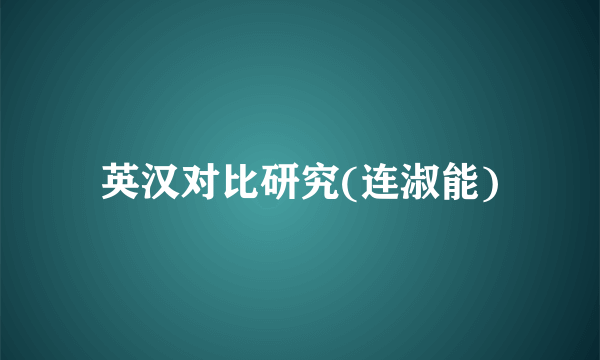
英汉对比研究
第一章:综合语与分析语
(Synthetic vs. Analytic)
综合语的特征是运用形态变化来表示语法关系。Webster’s Ninth New Collegiate Dictionary给综合语定义为:A synthetic language is “characterized by frequent and systematic use of inflected forms to express grammatical relationships”.拉丁语、德语及古英语等都属于这类语言。
分析语的特征是不用形态变化而用词序及虚词来表达语法关系。The Random House College Dictionary给分析语法定义为:An analytic language is “characterized by a relatively frequent use if function words, auxiliary verbs, and changes in word order to express syntactic relations, rather than of inflected forms”.汉语是典型的分析语。
现代英语是从古英语发展出来的,仍然保留着综合语的某些特征,但也具有分析语的特征:有形态变化,但不象典型的综合语那么复杂。词序比汉语灵活,但相对固定;虚词很多,用得也相当频繁。现代英语运用遗留下来的形态变化形式(hereditary inflections)、相对固定的词序及丰富的虚词来表达语法关系,因此属于综合—分析语(synthetic-analytic language)。
形态变化、词序和虚词是表达语法意义的三大手段。这些语法手段在英汉两种语言中具有不同的特征。此外,英语采用拼音文字,句有语调(intonation);汉字绝大多数为形声字,字有声调(一,他已给我两本书。1)严



